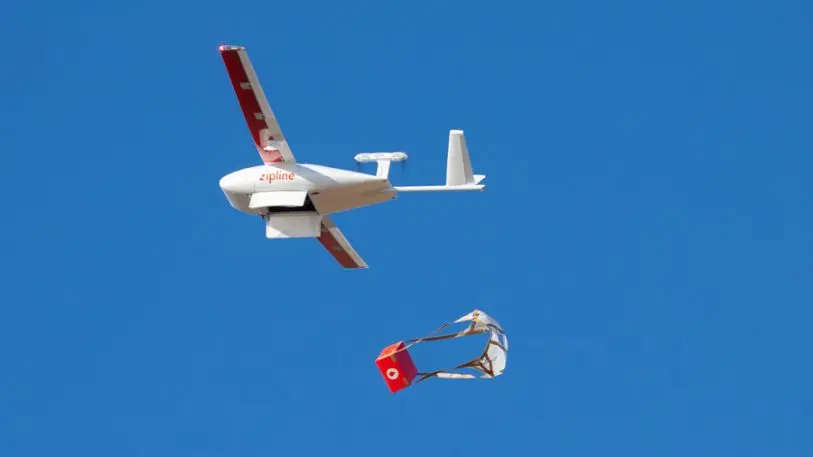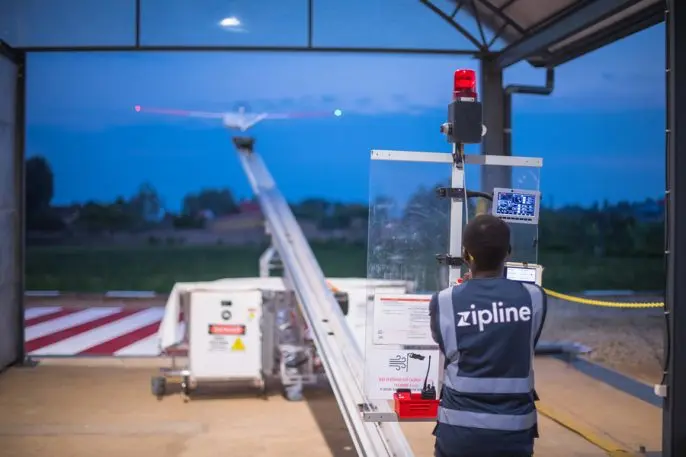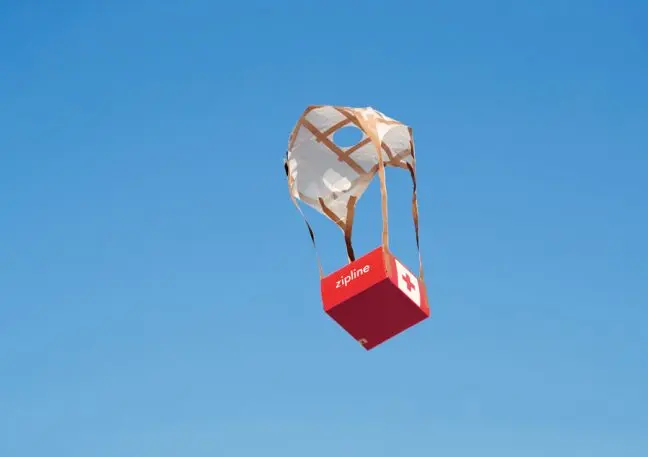Zipline, a medical drone delivery company that launched in Rwanda, planned to come to the U.S. later this year. But as the coronavirus crisis grows, the company is now working with government regulators to try to launch as soon as possible.
In its current operations in Rwanda and Ghana, the company is already using drones as a tool for social distancing—since deliveries happen without a delivery person—and for more efficient operations. In Ghana, for example, the startup’s warehouses hold all emergency stocks of masks and gloves so that they can be delivered to regional hospitals, in minutes, whenever there’s a surge of demand.

The system also helps reduce the pressure on large hospitals, because it can deliver needed supplies for other medical procedures, such as blood for surgeries, to other locations. “We’ve been able to expand the range of services available at much smaller clinics located in areas much further away from the big regional hospitals,” says Justin Hamilton, global head of communications for the company. “In the past, if you needed a certain level of care, the only place you could get it was the hospital. Now, because you can go to a clinic closer to home, that helps free up capacity at the hospital to deal with larger emergencies and make sure that that bed space is reserved for somebody who might need it.”

In the U.S., which now has more coronavirus cases than any other country in the world, the company sees a few key opportunities to help. First, the drones could be used to deliver home equipment to enable telemedicine appointments for some patients, such as tech that someone can use at home to let a doctor listen to their heartbeat or do a throat exam remotely. Similarly, the drones could deliver specialty medicines that aren’t available at local drugstores. The company is still a little vague on how the deliveries would work. In Africa, they deliver directly to health clinics. For now, they say that they’d deliver to designated areas in neighborhoods (presumably closer than the doctor’s office or a drugstore), but that they’re looking at ways to drop supplies off directly at people’s homes.

“There are tens of millions of Americans with chronic and underlying conditions that require regular medical care, consultations, trips to the hospitals, and specialty pharmaceuticals,” Hamilton says. “Because COVID-19 is going to overwhelm the health system, that means that these chronic care patients can’t go to the hospital, both because they’re at higher risk for infection and death, and because there’s just no, there’s no capacity to help them at the moment. What we’re seeing is, I think, a big surge in the idea of telemedicine.”
As in Africa, the company could also quickly distribute masks and other personal protective equipment (assuming, of course, that those masks exist.) And when a vaccine is produced, it will likely be available only in limited quantities initially; drones could assist with delivering it to the most critical areas. “You have to have a way to very rapidly distribute a very, very scarce but lifesaving commodity over very, very large geographies, in real time, and ideally in a contactless way that maintains social distancing and does not require humans to operate,” he says. “And we can do that.”
Once it has FAA approval to operate, the system could be operational in the U.S. very quickly. The company ran exercises in 2019 with the Department of Defense, testing its ability to rapidly deploy on the battlefield or in a disaster; it took only a couple of weeks to set up a new system.
Recognize your brand’s excellence by applying to this year’s Brands That Matter Awards before the early-rate deadline, May 3.